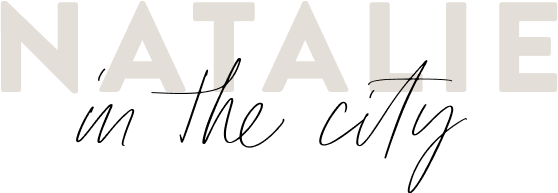Every year, I celebrate International Women’s Day with either a pedicure, massage, or my favorite dinner. But this year, I’m being bold for change, which is this year’s International Women’s Day theme.
There are so many inequalities facing us today, and with the recent political state, it is more important than ever to stand together in our differences and lift each other up. The gender pay gap and inequalities women face in the workforce has been something on my mind lately. As a young woman who entered the workforce less than two years ago, I have had the chance to work with women from all backgrounds and skill sets. It’s been so empowering to work with other women and learn from them, but it’s also been eye opening to see the struggle some of us endure when it comes to negotiate salaries, corporate contracts, or even new government policies. Recently, I psyched myself out for my first annual review at my job. “I’m going to ask for a raise AND a promotion,” I told myself. Did I ask for either of those things? NOPE. Did I deserve those things? Unfortunately, I don’t really know. I questioned my worth and work ethic and whether or not I would be viewed as too forward or entitled (something women often do). Even other women in my life questioned my motives and labeled it “ballsy.” Speaking of balls, I have seen men in the workforce nonchalantly ask for a raise and a promotion without a doubt in their minds—even if their work ethic wasn’t the greatest—and they get it. Every time. But women have a knack for creating mutually positive deals, so why do we hold back from negotiating?
To learn the reason behind this, I’ll be tuning into a free webinar called Women in Negotiation on International Women’s Day, March 8. You can register for the free webinar by visiting this link. I wanted to sit down with the webinar hosts Jill Campen and Violaine Galland, negotiation consultants at Scotwork North America, beforehand to chat about the gender pay gap and building negotiation skills. I also scored some insight on what attendees can expect to learn from this empowering webinar. Read my exclusive interview with them below!
Natalie: Why do women struggle more than men when it comes to negotiating for themselves?
Jill and Violaine: As negotiation consultants with Scotwork, we’ve observed hundreds of women over tens of thousands of hours of negotiating. Through this, we see common differences between how men and women negotiate. Both men and women leverage their innate personality traits to their advantage. For women, we tend to be more thorough and methodical in how we prepare for a negotiation. This means we typically have a greater depth of understanding of the issues than men do. Probably no surprise, we are usually better listeners and are better at picking up on signals from the other side. Lastly, we tend to empathize better with those that we negotiate with, which means we are more apt to understand their needs more so than our male counterparts do. These qualities make women very successful at negotiating win-win deals. However, women are more inclined to apply these skills when we are negotiating for or on behalf of others. On the contrary, we find that many women negotiating for themselves struggle to apply their innate talents and therefore struggle when negotiating for themselves. We believe this has to do with our cultural conditioning.
Our culture has taught women to be polite, to let others speak first, to show empathy and to create harmony in relationships. These are all wonderful qualities except for the fact that it has led many women to feel that they can’t pair these behaviors with assertiveness or boldness to go after what they want. The women who are assertive and bold are often labeled as “bitchy” or some other negative attribute that is not associated to male counterparts exhibiting the same behavior. This has conditioned many women to not be as assertive so they can avoid the unfair negative judgment.
How does this lack of negotiation feed into the gender pay gap?
The gender pay gap has been an issue that has plagued the US workforce for decades. This issue will not be resolved by just one solution. Eliminating the wage gap will happen by motivated business leaders, daring policy makers, and individual women standing firm on their rights and how they are valued in the workplace. For many women, it also means they must be brave and fight their own conditioning.
As an example, some women have the learned behavior to defer. These women typically wait for others to tell them when they are ready for a raise instead of pursuing a raise. We may even tell ourselves that we don’t deserve the higher wage, or we are too hard on ourselves, or maybe we don’t meet every single criterion stated for a job raise therefore we don’t even try. Contrast that with our male counterparts, who statistically, tend to minimize the self-criticism or stated criteria for success and will more aggressively pursue a raise. Interestingly, “not deferring” is also a learned behavior.
What are some key takeaways women can learn from this webinar?
We are encouraging women to be bold in their negotiations and to be strong in ways that will allow them to achieve their objectives while receiving the same positive allocates afforded to their male counterparts. Major takeaways from this webinar are focused on helping women understand their strength and leverage—in other words, her power—and how to use it to her advantage. We will also discuss tips for overcoming fear of conflict or rejection and execute negotiations with confidence to get the results they want.
Why is it critical today for women to learn these negotiation skills?
Gender roles are slowly disintegrating. Cultural biases are shifting. Women hold power in business today more than they ever have. According to SUM180, almost 50% of U.S. women are now the family breadwinners. Negotiation is a key component to not only being successful in business, but also in life. We negotiate every day. Whether you’re negotiating a salary, corporate contract, or just buying a new cable package, negotiation is a life skill that can be learned an applied effectively when the proper tools are used. It is essential to learn negotiation skills to navigate the new economy.
Join me on March 8 at 2 p.m. EST for this free webinar and get a chance to ask Jill and Violaine questions of your own during the live Q&A portion of the webinar.


